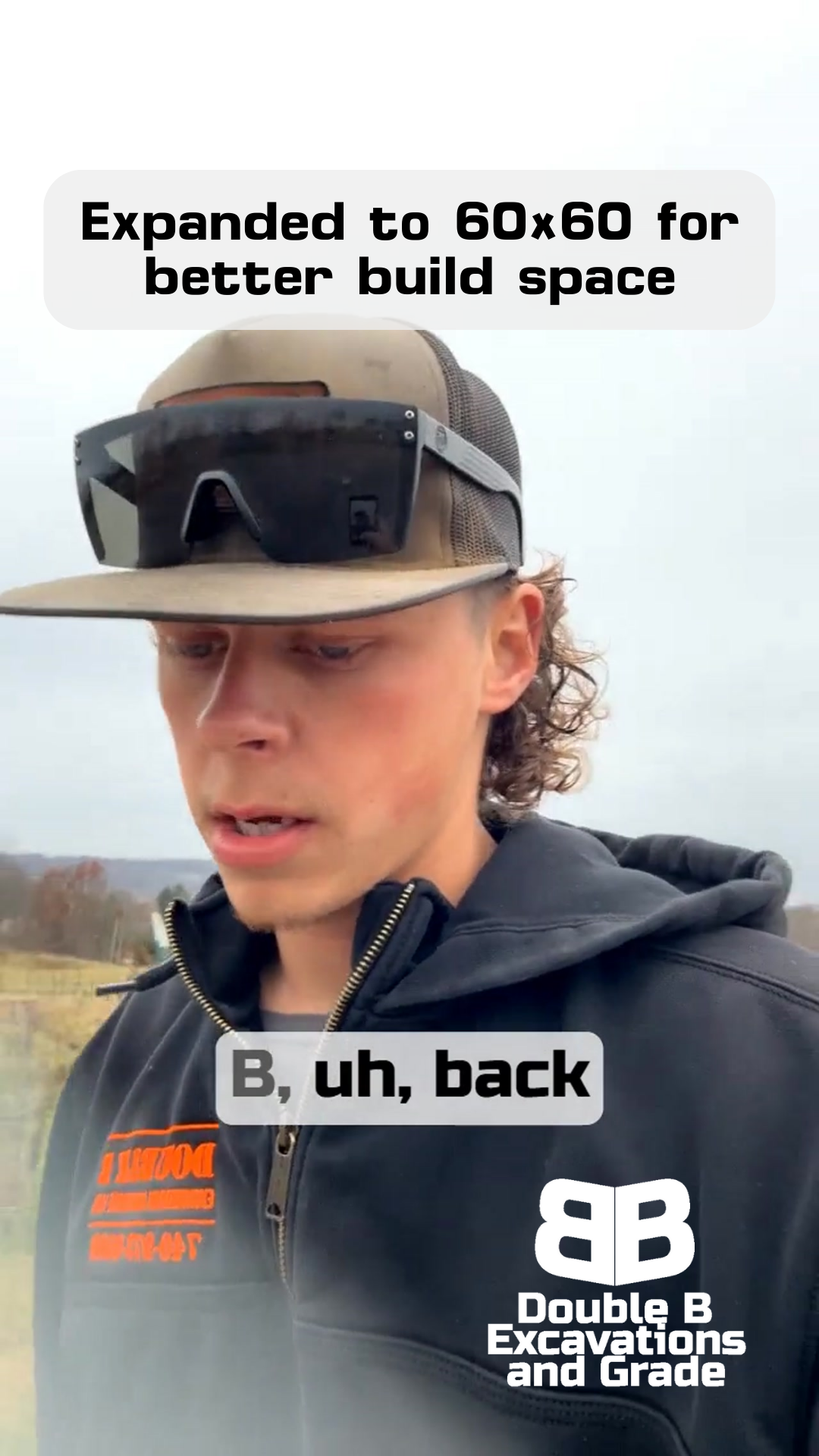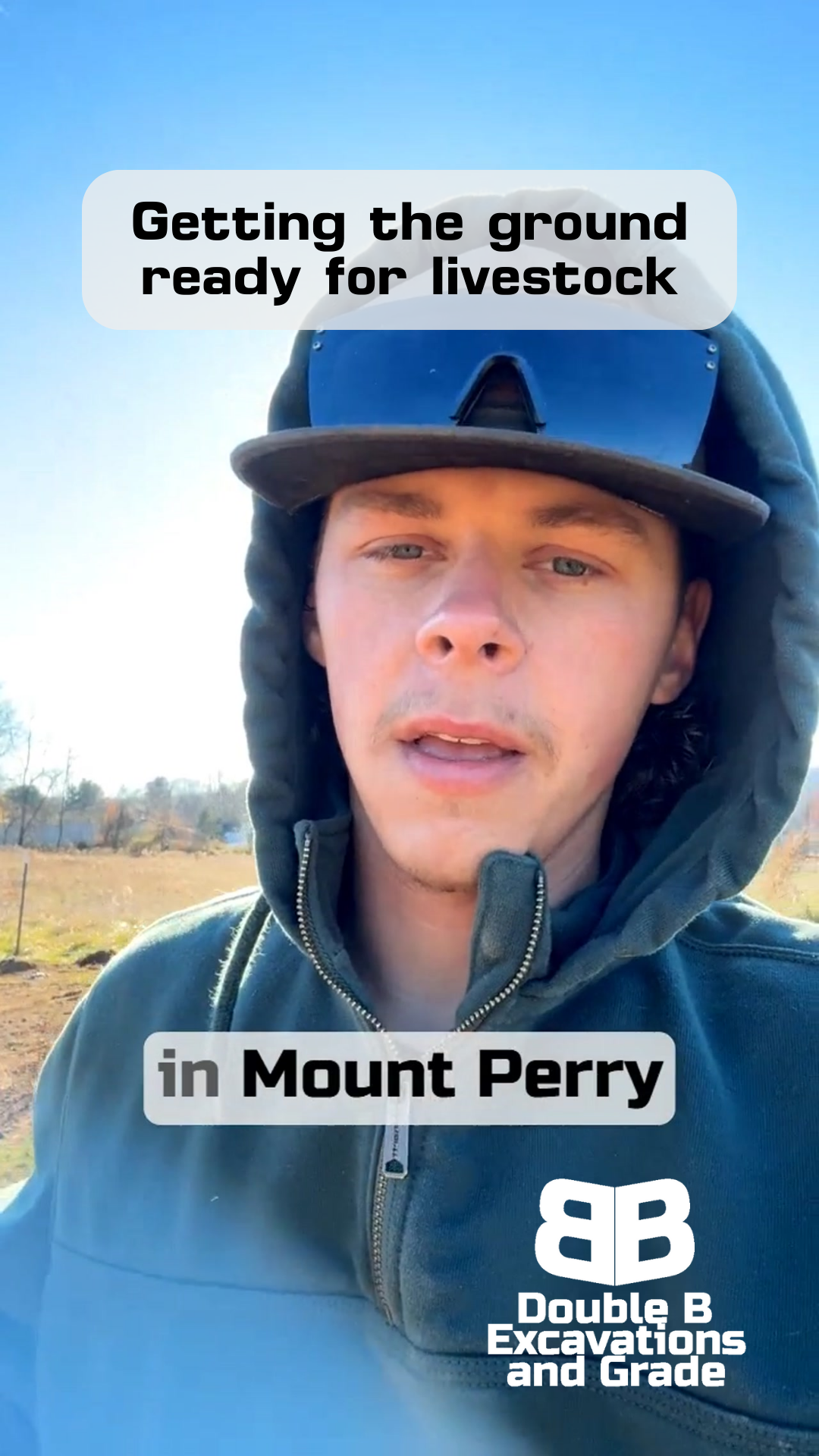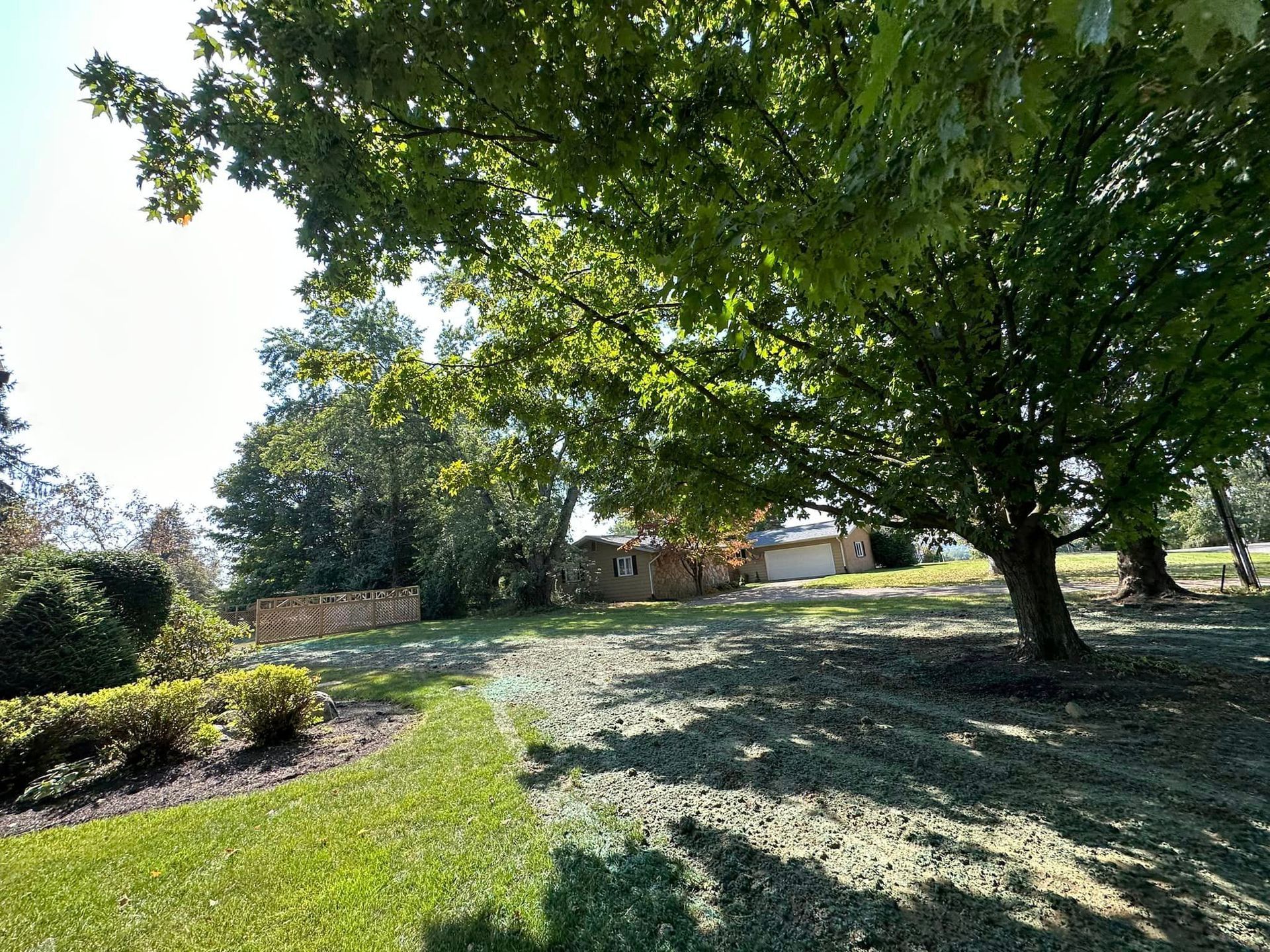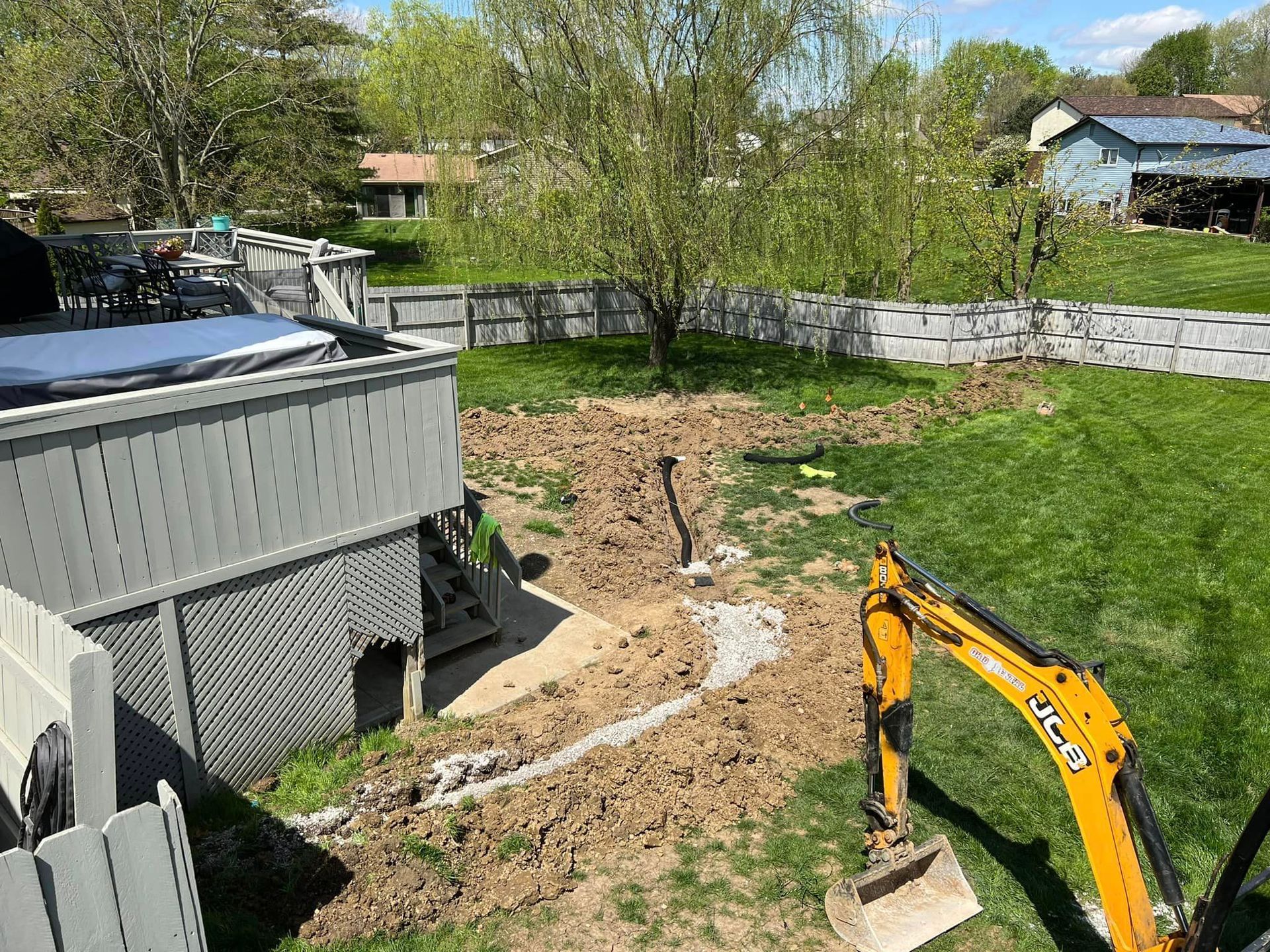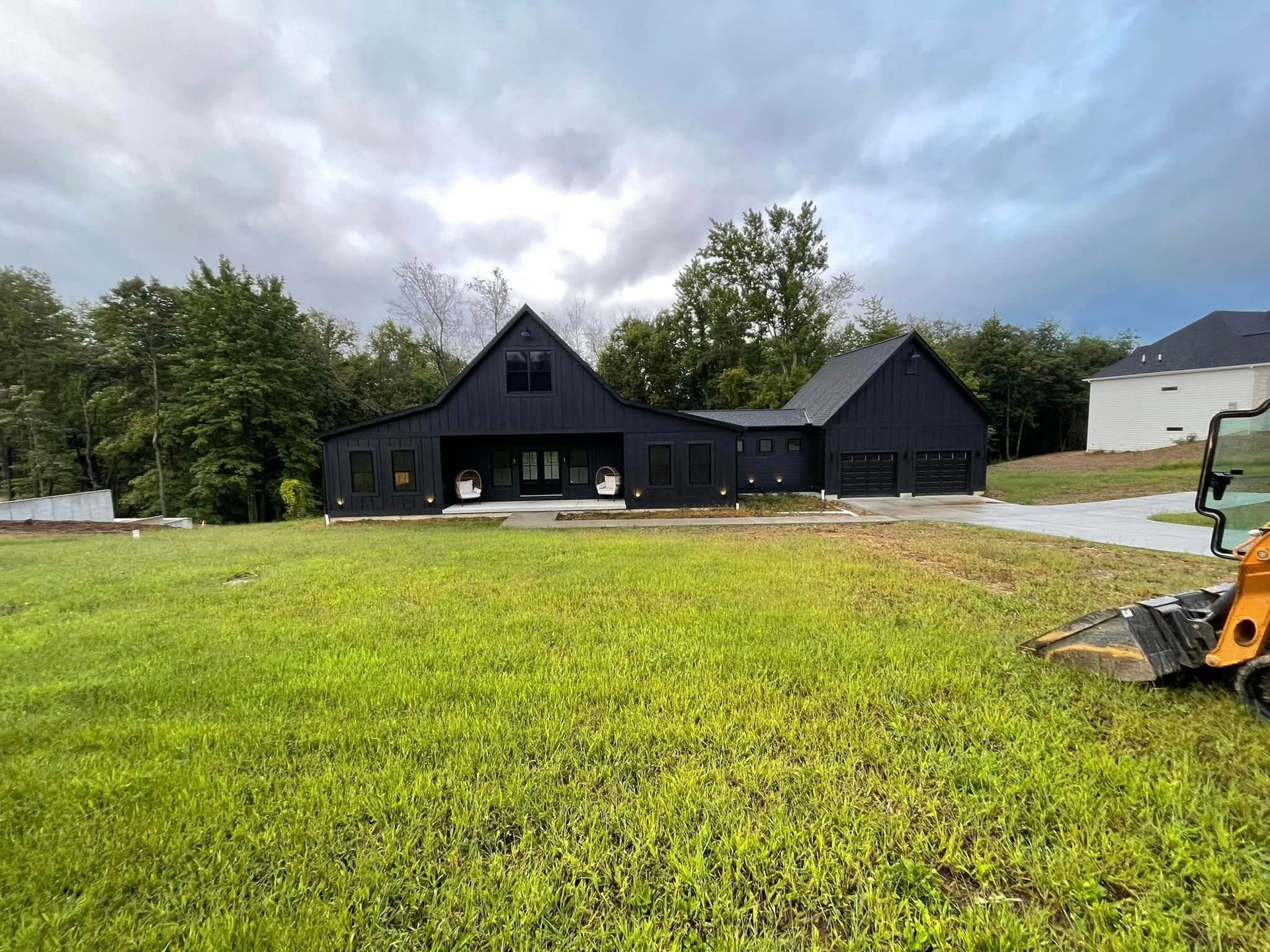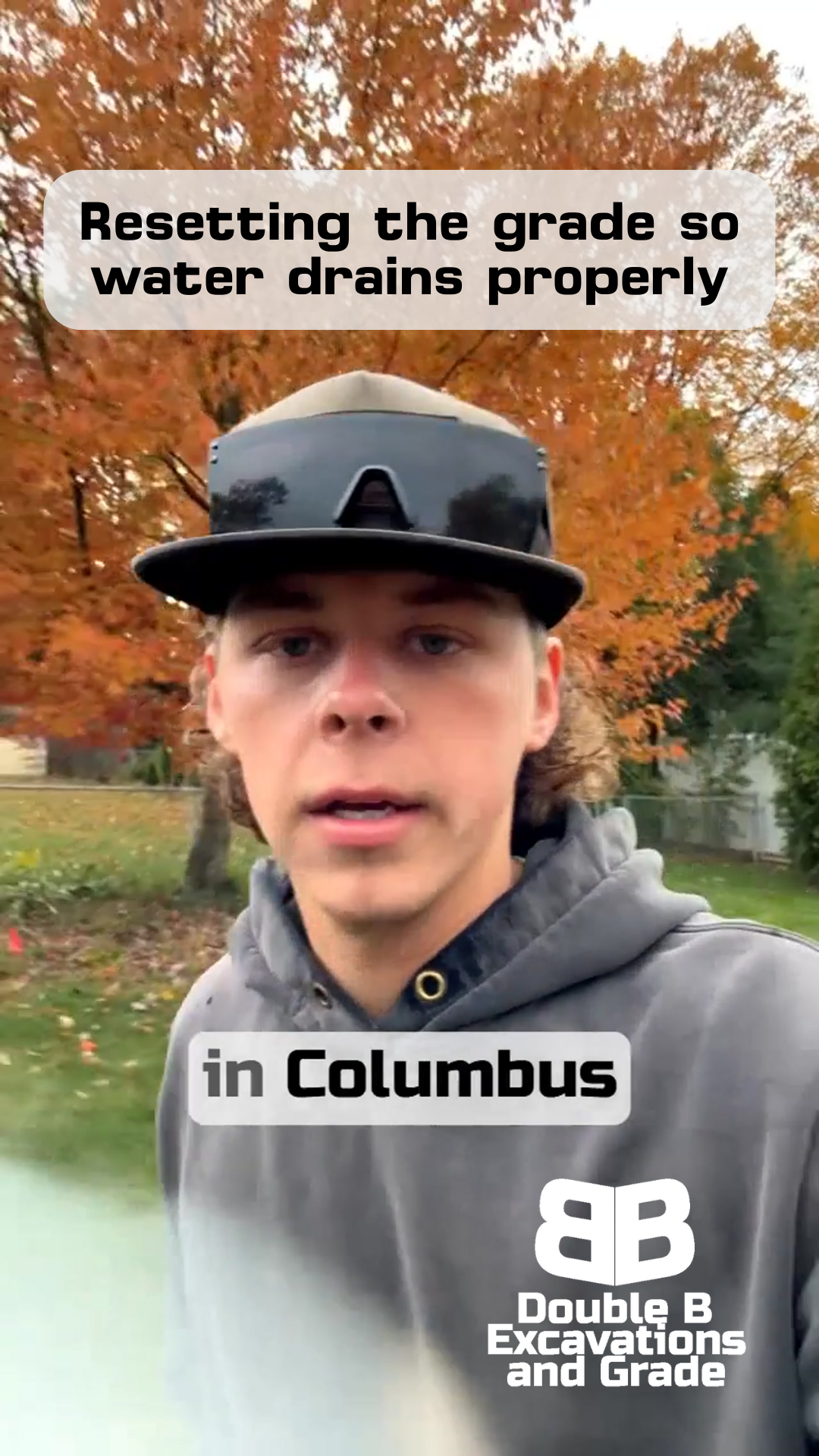The Complete Guide to Fixing Standing Water Issues Through Proper Grading
Double B Excavations & Grade LLC
Fixing The Water Problem In Your Yard
STANDING WATER CAN LEAD TO BIGGER ISSUES IF LEFT ALONE
Standing water in your yard isn't just an eyesore - it's a problem that can damage your property and make simple tasks like mowing a real headache.
We're seeing this firsthand at a project we just started in Pataskala, where a homeowner's dealing with exactly this issue.
Their yard collects water in all the wrong places, making parts of their property unusable and difficult to maintain.
This isn't just about having a few puddles after it rains. When water sits in your yard, it can kill your grass, create breeding grounds for mosquitoes, and even cause foundation issues if it's close to your house.
The good news? With proper grading, we can fix these issues for good.
Welcome to Double B!
Understanding Your Yard's Water Issues
Before we talk about solutions, let's look at how to spot drainage problems in your yard. The obvious sign is standing water that doesn't drain away within 24 hours after rain. But there are other signs you might not notice right away:
- Soggy, spongy areas in your lawn
- Grass that's patchy or dying in certain spots
- Areas where your mower gets stuck or leaves ruts
- Water flowing toward your house instead of away from it
In Pataskala, our customer's yard showed several of these signs. The water was pooling in low spots, and they had a hill that was causing problems too. These issues usually happen because of one of three things: natural low spots in your yard, soil that's too compacted to drain properly, or incorrect grading that doesn't give water anywhere to go.
If you ignore these problems, they only get worse. That wet spot in your yard can turn into a mud pit. Those patchy areas where grass won't grow? They'll keep spreading. And if water's moving toward your foundation, you could be looking at expensive repairs down the road.
The Grading Solution Process
Let me walk you through how we tackle these problems, using our Pataskala project as an example. First thing we did was a complete site assessment. Before we even fired up any equipment, we needed to understand how water was moving across the property and where it was getting stuck.
Site prep is crucial - and sometimes that means working around what's already there. In Pataskala, we had to coordinate with the homeowner to move picnic tables and even a deer feeder. This might seem like a small detail, but it's part of respecting the property and making sure we can access every spot that needs attention.
When it comes to equipment, we're using specific tools for specific jobs. Our Harley rake isn't just for making things look pretty - it's a precise tool that helps us prepare the surface just right. Think of it like a giant comb for your yard, but one that's actually reshaping the surface to help water flow where it should.
The Multi-Step Approach
Here's where the real transformation happens. We're not just pushing dirt around - we're creating a plan for every drop of water that hits your property. In Pataskala, we're cutting down a hill to make it more manageable. "Mowable" is the word we use, because what good is a beautiful yard if you can't maintain it safely?
After reshaping the ground, we're bringing in about 100 yards of topsoil. That might sound like a lot, but here's why it matters: good topsoil isn't just dirt - it's the foundation for everything that comes next. It needs to be the right type of soil that will:
- Support healthy grass growth
- Allow proper drainage
- Stay in place during heavy rains
- Be easy to maintain
We're finishing this project with hydroseed, but that's not just about making things green. Hydroseeding helps prevent erosion and ensures all our grading work stays exactly where we put it. It's about building a system that works together - proper grading, quality soil, and established grass all working as one.
Why Quality Matters
When we tell customers a project like this one in Pataskala will take two days, sometimes they wonder why it's not faster. But here's the truth: rushing grading work is like building a house on sand. You might save time today, but you'll pay for it later.
Every step matters. That's why we're particular about:
- Getting the slopes just right - too steep and you can't mow safely, too shallow and water won't drain
- Using the right amount of topsoil - in this case, 100 yards
- Taking time to properly prepare the surface with our Harley rake
- Making sure the hydroseeding happens at just the right time (in this case, Friday morning)
After The Grade
Once we finish a grading project, there's still some important things you need to know. The first few weeks are crucial - your yard is settling into its new shape. Here's what to watch for:
During the first heavy rain, pay attention to how water moves across your property. It should flow away from your house and other structures, disappearing within 24 hours. If you notice any spots where water still collects, let us know right away. It's much easier to make small adjustments early than to fix problems later.
For yards like our Pataskala project, where we're hydroseeding after grading, you'll need to follow specific watering instructions. This helps ensure your new grass establishes properly and your soil stays exactly where we put it.
Closing
Fixing standing water issues isn't just about making your yard look better - it's about making your property more usable and valuable. When done right, proper grading can:
- Save your grass from drowning
- Make mowing easier and safer
- Protect your home's foundation
- Reduce mosquito breeding areas
- Give you back the full use of your yard
Looking Forward
If you're dealing with standing water in your yard, don't wait until it becomes a bigger problem. We're always happy to come out and take a look at properties in Pataskala and throughout central Ohio. Sometimes the fix is simpler than you might think - but you won't know until you have an expert assess the situation.
Remember, every yard is different, just like every homeowner's needs are different. Whether you've got a deer feeder that needs working around or a hill that's becoming a hazard, we'll find a solution that works for your specific situation.
